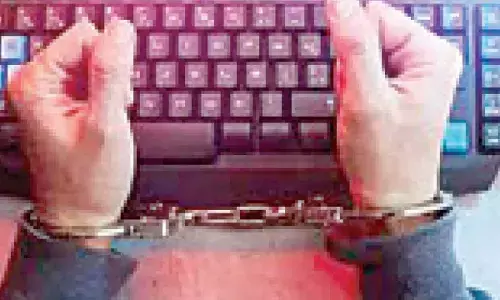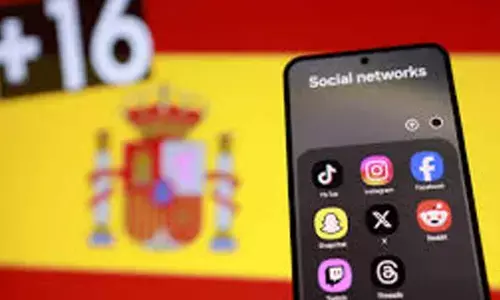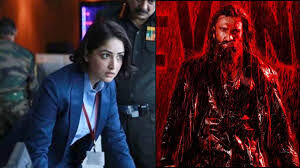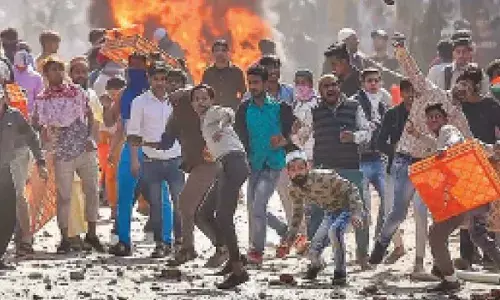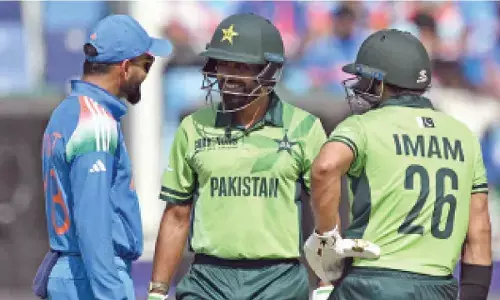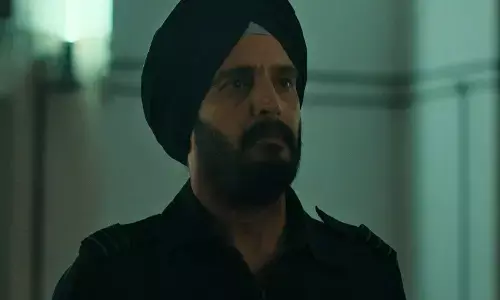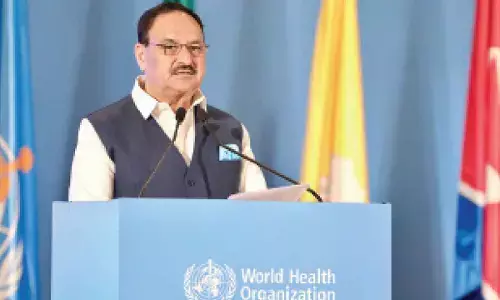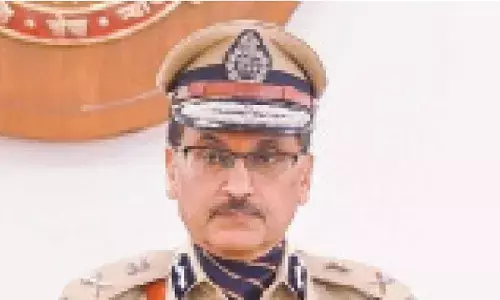Quizzed cops' inaction, judge transferred!
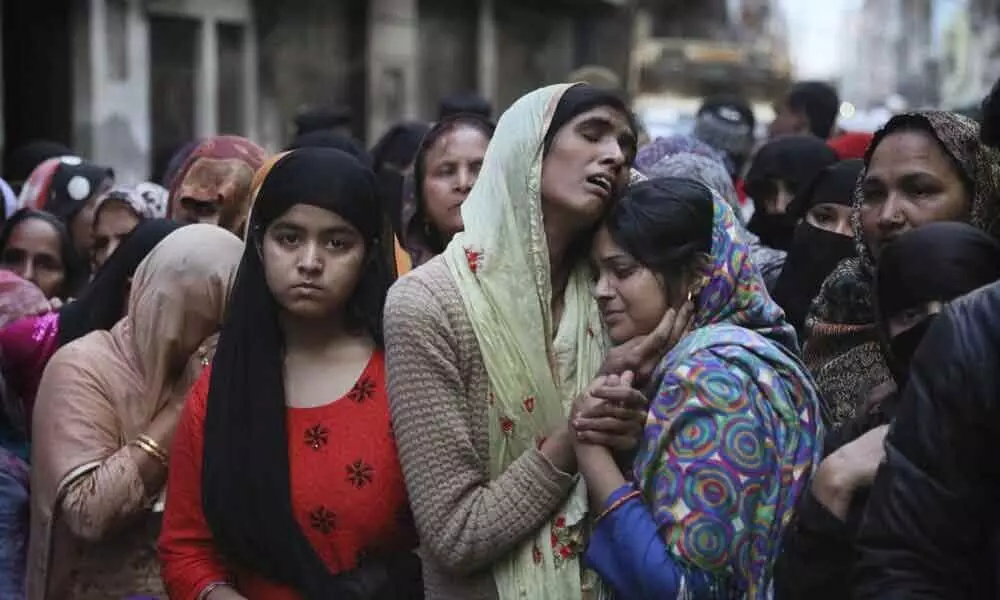
So far, we have been under the impression that the Judiciary is independent and powerful.
So far, we have been under the impression that the Judiciary is independent and powerful. A High Court judge questioned the inaction of the Delhi Police against deliberate provocative hate speeches by three BJP leaders and asked them to take a conscious decision within 24 hours.
The police were not admonished, Commissioner was not shifted, Home Minister did not act. Ministry of Justice reacted, President issued a notification of immediate transfer of judge by a midnight order.
Chief Justice of Delhi High Court took over the hearing and ordered the police to take a decision not immediately but within four weeks. Message is loud and clear to all judges, especially those hearing the cases against police.
On February 12, the Supreme Court website published a "statement" that the Collegium recommended the transfer of Dr Justice S Muralidhar from Delhi High Court to Punjab & Haryana Court, Bombay High Court Judge Ranjit More to Meghalaya High Court and Karnataka High Court's Ravi Vijay Kumar Malimath to Uttarakhand High Court.
The common statement through which these transfers are made, strangely did not state the reasons for these transfers. Then what is the sanctity of the Supreme Court's resolution dated October 3, 2017 which expressed commitment to be transparent. Can the Supreme Court act against its own resolution?
On February 19, the Delhi High Court Bar Association (DHCBA) gave call to its members to abstain from work for a day in protest against the recommendation to transfer Justice S Muralidhar. Bar association criticised that such transfers tend to erode the faith of the common litigant in the justice dispensation system and further impede the free and fair delivery of justice.
The DHCBA has condemned Muralidhar's transfer and requested the collegium to recall the decision. "The majesty of our revered institution is at stake," it added.
Justice Muralidhar's transfer has been discussed in the Collegium earlier also in December 2018 and January 2019 but faced stiff opposition from the senior judges of the Supreme Court, besides the then Chief Justice of India Ranjan Gogoi advised against his transfer.
Harsh Mander has filed a writ petition before Delhi High Court, on February 26, that came before the bench of Muralidhar and Talwir Singh seeking registration of FIRs against hate speech even as the violence started on February 23.
After hearing the stiff resistence from the counsels of the police, insisting that FIR would be registered at appropriate time when conducive, the Bench asked the Delhi police to take conscious decision taking guidance from the Supreme Court's decision in Lalita Kumari v State of UP, regarding FIRs.
The order has hit headlines next day in the media such as 'Why no FIR for hate speeches: Delhi High Court pulls up police', and 'HC reads Delhi Police the Riot Act', Usually the transferred judge gets fourteen days to assume charge in the transferred place.
But within hours after the Bench headed by Muralidhar passed the order on FIR against hate speech, the Ministry of Law and Justice notified immediate transfer of Justice Muralidhar.
The notification was seen as unusual because it marks a departure from practice by failing to give the judge time to make his move. It assumed high significance and became sensation because this notification was made within hours after Justice Muralidhar had expressed his "anguish" on Wednesday morning over Delhi Police's failure to register first information reports (FIR) against political leaders for allegedly making hate speeches leading to sectarian violence in north-east Delhi.
While the President of the Supreme Court Bar Association, Dushyant Dave, criticised the manner and haste with which the transfer was notified as "absolutely mala fide and punitive", the Union Law Minister Ravi Shankar Prasad has gone on record to state that the transfer was a routine one.
The question is if it is a routine transfer as per the Collegium's recommendation, why only one Judge i.e., Muralidhar's transfer was notified while it was silent on other judges' transfer? Besides, the timing and speed of the Presidential notification about Muralidhar also shows selective use of the transferring power.
As the 'transfer' notification came within hours of passing an order which is considered as adverse to the Central government and the Delhi Police, it raised suspicion of mala fides behind it.
Justice Muralidhar said this judgement was his "last judicial work in this court (Delhi High Court)". A group of young lawyers bade goodbye to the judge and thanked him for being an inspiration to them. While earlier notifications of transfers gave the judges one week or fortnight to join, Muralidhar was asked to join immediately.
Senior advocate Abhishek Manu Singhvi tweeted: "Having spent a lifetime at the Bar, I do not remember ever having seen a Presidential order of high court judge transfer where central govt adds 'and directs him to assume charge' as judge, PH High Court! See yesterday order re Muralidhar J. Unprecedented."
In fact, the Supreme Court stopped giving reasons for decisions regarding transfers and appointments since October 2019, that is after 2 years of its 'transparency' resolution.
The decision to recommend a judicial officer for elevation as a judge of the Meghalaya High Court simply read: "The Supreme Court Collegium in its meeting held on 15th October, 2019, after taking into consideration the material on record, has approved the proposal for elevation of Shri Wanlura Diengdoh, Judicial Officer, as Judge of the Meghalaya High Court."
Its earlier resolutions gave details of appointment recommendations moved from the High Court Collegium to the five senior-most judges of the Supreme Court. The views of the Centre and the information provided by the Intelligence Bureau were also referred to in some resolutions.
Justice Muralidhar was appointed as a judge of the Delhi High Court in 2006. He will be retiring in 2023 at 62 years of age. He is often referred as one who gave 'bold verdicts'. He is part of the Bench which delivered very important judgments.
The DHC had convicted Uttar Pradesh Provincial Armed Constabulary (PAC) personnel in the Hashimpura case where 42 persons were massacred. He has indicted Congress leader Sajjan Kumar in the 1984 anti-Sikh riots case noting that there was "a familiar pattern of mass killings in Mumbai in 1993, in Gujarat in 2002, in Kandhamal, Odisha, in 2008, in Muzaffarnagar in UP in 2013" where minorities were being targeted and the attacks were being "spearheaded by the dominant political actors being facilitated by the law enforcement agencies".
He also wrote: "The criminals responsible for the mass crimes have enjoyed political patronage and managed to evade prosecution and punishment". He was also part of the Delhi High Court bench that had first decriminalised homosexuality in the 2009 Naz Foundation case. The Full Bench with Justice Muralidhar has in 2010 that ruled in favour of Subhash Chandra Agrawal, who sought in an RTI, information from the Supreme Court registry on how many judges had declared their assets.
In 2018, the judge also set aside the transit remand issued against activist Gautam Navlakha, who was linked to the violence in Bhima Koregaon. Questioning the legality of Navlakha's arrest, the High Court noted that every minute a person remained in custody was a matter of concern.
In 2018, the DHC bench under his leadership has rejected a plea filed by BJP leader Subramanian Swamy, seeking an independent probe in the Sunanda Pushkar case. He noted: "The court is left with a distinct impression… that this is perhaps a textbook example of a 'political interest litigation' dressed up as a PIL."
In the cause list of Muralidhar, a special mention was used to be there requesting lawyers not to address him as 'My Lord' or 'Your Lordship'.
(The writer is former Central Information Commissioner and Professor at Bennett University)








